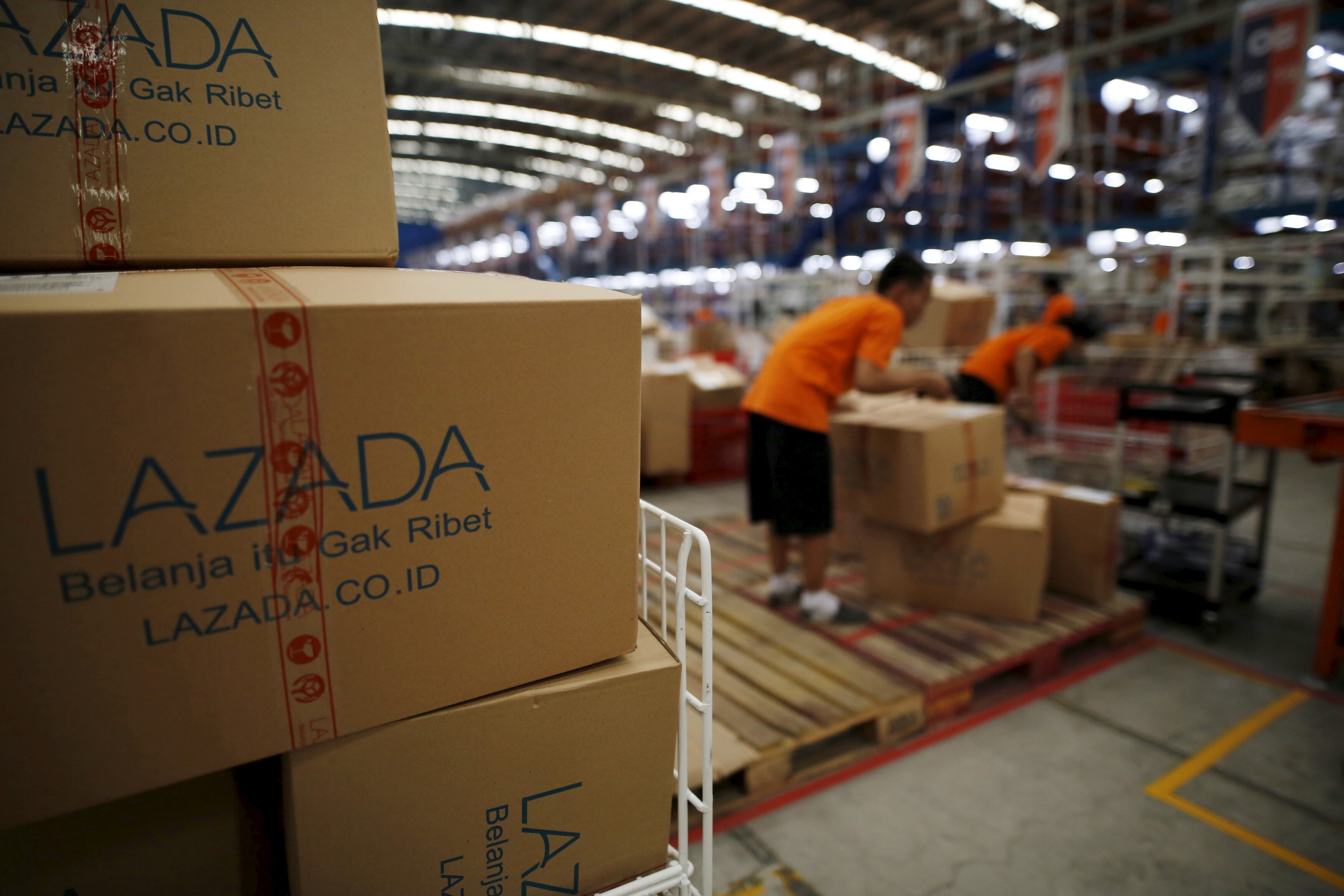How making trade faster and easier empowers women around the world

A woman sells food items at a local market in Nigeria. Image: REUTERS/Joseph Penney (NIGERIA - Tags: POLITICS ELECTIONS) - GM1E73S1I8W01
- Participating in international trade can benefit women and increase gender parity.
- Trade offers new job opportunities, higher wages and more economic development for communities.
- Governments must reduce trade barriers, and businesses must include and empower women.
International women’s day is an opportunity to reflect on solutions to achieving gender equality goals. One such route to women’s empowerment is by providing opportunities for women to trade and ensuring that the benefits of trade facilitation reform - making trade faster, easier and more cost-effective - reach women around the world.
In 2017, 118 countries endorsed a World Trade Organization (WTO) Joint Declaration on Trade and Women’s Economic Empowerment, committing to tackling barriers to trade that affect women, including the role of trade facilitation in providing equal access and opportunities for women entrepreneurs.
Yet today, women-owned and led businesses are still underrepresented in international trade and tend to be small and operate in the informal sector. Only 15% of exporting firms are led by women.
Here's facilitating trade empowers women and what more needs to be done to realize its benefits.
Trade benefits women - and the economy
The argument for women's economic empowerment is clear: equal roles in the labour market could result in as much as $28 trillion, or 26%, added to global annual GDP by 2025. International trade reforms can help bridge this gap.
Growing export industries through joining global value chains (GVCs) has been shown to provide strong employment opportunities for women. For example, in Bangladesh, opportunities in the garment industry allowed many women from poor families to enter the labour force for the first time.
However, it is also important to note that such employment growth is sometimes segregated along gendered lines, which could reinforce skill gaps among genders. Policymakers must, therefore, play a role in upskilling and providing other incentives for women to enter male-dominated industries to prevent gendered labour divisions from forming and becoming aggravated.
Participating in trade can also increase wages for women. Studies have found that jobs in export sectors tend to be higher paid than jobs in the informal sector and that importers and exporters tend to pay higher wages. Additional income can provide women with economic independence, greater freedom and greater control, which is a positive step towards gender equality.
Moreover, studies have found that women tend to dedicate a more substantial portion of their income to purchasing household goods and necessities for their families, in comparison to men. They are also more likely to use increased income to benefit their children’s education and health, according to the International Trade Centre (ITC). So when women earn higher incomes from working in trading businesses, their families and their communities benefit.
In addition, women-owned businesses participating in trade drive employment creation and inclusive sustainable economic development in their communities. Firms exposed to trade are more productive, and firms with more women in leadership positions tend to generate higher returns and have higher revenue, efficiency and productivity.
Women-owned businesses that are active in international trade have the potential to grow their businesses, and thereby create inclusive growth in their communities, through expanding employment, according to analysis from the ITC. Women entrepreneurs are also more likely to employ women, thereby spreading the benefits of their success. A survey of 20 developing countries conducted by ITC found that in "40% of women-owned firms, the majority of employees are female, compared to just 22% of men-owned and managed exporting companies.”

How can we ensure women benefit from trade?
Policymakers, businesses and the development community must focus on increasing trade opportunities for women and eliminating the challenges to trade that exist today.
One such mechanism to reduce non-tariff trade barriers and red tape so that women-owned businesses can reap the benefits of trade is the Global Alliance for Trade Facilitation. The Alliance is a mechanism to bring governments and businesses together to help countries implement the Trade Facilitation Agreement. If fully implemented, the agreement stands to reduce trade costs by more than 14% in low-income countries and more than 13% in upper-middle-income countries, according to estimates.
For example, Alliance projects in Zambia and Malawi are creating new licensing frameworks for customs clearing agents, a field where women are largely underrepresented, and establishing accredited training programmes for agents to upskill. A scholarship fund designed to support agents in becoming professionally licensed is being used to attract women to join the industry.
What is the World Economic Forum doing on trade facilitation?
The global community can also build capacity through ITC SheTrades, an initiative focused on improving trade and market access for 3 million women entrepreneurs by 2021. One of the core components of the SheTrades portfolio is developing the capacity of women-owned businesses to internationalize. For example, in West Africa, SheTrades is training and coaching women in the agricultural sectors of cashew, cassava and shea in export strategies, standards, packaging and branding.
These trainings help women to access new markets and new trading partners, improve competitiveness, and thereby grow their businesses. They also provide an opportunity to raise awareness of the role women-owned businesses can play in empowering women. Similar trainings in East Africa under the ITC SheTrades Commonwealth program found that 60% of women-owned business beneficiaries reported having started a project to empower women or benefit their communities.
Another way to empower women in trade is by improving networking to address the challenge of finding customers, suppliers and information needed to successfully trade across borders. Women can be particularly disadvantaged in this effort due to time poverty stemming from household responsibilities and traditional networking opportunities being catered to men.
For example, WEConnect International connects women-owned businesses to qualified buyers around the world. It runs a program to educate, register and certify women-owned businesses outside the US and connects them with multinational buyers including Walmart, Johnson & Johnson and more. WEConnect’s efforts to provide networking opportunities that are specifically targeted for women plays a central role in enabling women to source customers to trade and grow their businesses.
We must all work together to empower women through trade.
The public and private sectors must come together to realize the economic and social benefits to empowering women through trade. Governments can play a role through trade reform: making trade easier, faster, more cost-effective, and companies can source from women-owned business and contribute to capacity-building initiatives.
This International Women's Day let’s celebrate the initiatives that support women’s economic empowerment through trade and raise awareness of the actions we need to accelerate in order to reach gender parity by 2030.
Don't miss any update on this topic
Create a free account and access your personalized content collection with our latest publications and analyses.
License and Republishing
World Economic Forum articles may be republished in accordance with the Creative Commons Attribution-NonCommercial-NoDerivatives 4.0 International Public License, and in accordance with our Terms of Use.
The views expressed in this article are those of the author alone and not the World Economic Forum.
Stay up to date:
Trade and Investment
Related topics:
Forum Stories newsletter
Bringing you weekly curated insights and analysis on the global issues that matter.







